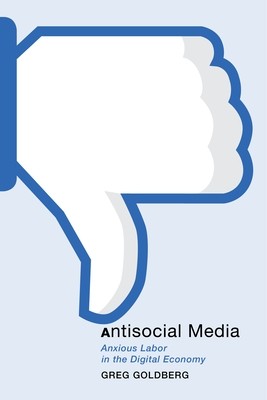
- We will send in 10–14 business days.
- Author: Greg Goldberg
- Publisher: New York University Press
- Year: 2018
- Pages: 224
- ISBN-10: 147982190X
- ISBN-13: 9781479821907
- Format: 15.2 x 22.6 x 1.5 cm, softcover
- Language: English
- SAVE -10% with code: EXTRA
Reviews
Description
The debate surrounding the transformation of work at the hands of digital technology and the anxieties brought forth by automation, the sharing economy, and the exploitation of leisure
We have been told that digital technology is now threatening the workplace as we know it, that advances in computing and robotics will soon make human labor obsolete, that the sharing economy, exemplified by Uber and Airbnb, will degrade the few jobs that remain, and that the boundaries between work and play are collapsing as Facebook and Instagram infiltrate our free time. In this timely critique, Greg Goldberg examines the fear that work is being eviscerated by digital technology. He argues that it is not actually the degradation or disappearance of work that is so troubling, but rather the underlying notion that society itself is under attack, and more specifically the bonds of responsibility on which social relations depend. Rather than rushing to the defense of the social, however, Goldberg instead imagines the appeal of refusing the hard work of being a responsible and productive member of society.EXTRA 10 % discount with code: EXTRA
The promotion ends in 20d.23:19:19
The discount code is valid when purchasing from 10 €. Discounts do not stack.
- Author: Greg Goldberg
- Publisher: New York University Press
- Year: 2018
- Pages: 224
- ISBN-10: 147982190X
- ISBN-13: 9781479821907
- Format: 15.2 x 22.6 x 1.5 cm, softcover
- Language: English English
The debate surrounding the transformation of work at the hands of digital technology and the anxieties brought forth by automation, the sharing economy, and the exploitation of leisure
We have been told that digital technology is now threatening the workplace as we know it, that advances in computing and robotics will soon make human labor obsolete, that the sharing economy, exemplified by Uber and Airbnb, will degrade the few jobs that remain, and that the boundaries between work and play are collapsing as Facebook and Instagram infiltrate our free time. In this timely critique, Greg Goldberg examines the fear that work is being eviscerated by digital technology. He argues that it is not actually the degradation or disappearance of work that is so troubling, but rather the underlying notion that society itself is under attack, and more specifically the bonds of responsibility on which social relations depend. Rather than rushing to the defense of the social, however, Goldberg instead imagines the appeal of refusing the hard work of being a responsible and productive member of society.

Reviews